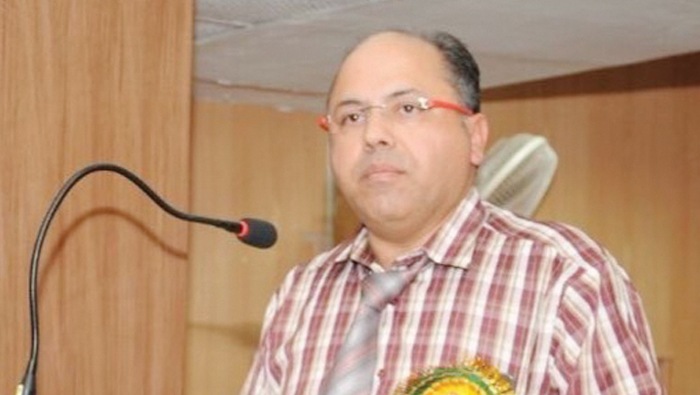
Muscat: An Indian professor in Oman has received an award from a global education body for his excellence in teaching standards in the Sultanate.
Dr Syed Mohammed Rizwan, the head of Mathematics and Statistics at the National University of Technology, recently received the Best Professor in Statistics Studies award at the Oman Education Leadership Awards 2019, which were presented by the World Education Congress.
“It is the best professor award, so they see the citations, they see your involvement in the subjects, they see how many PhD students you have produced, masters’ dissertations you have supervised, they look at how many awards you have won previously, and for how many years you have been teaching. I became a professor in 2009, and it took 10 years for me to reach that.”
“Whatever contributions I have made so far have helped me get this award,” added Rizwan. “They want to know if you are a person who is making a difference to the lives of students, and how your teachings are adapting to the changing educational climate. The jury in question will look at your CV and your contribution in different areas”.
Dr Rizwan came to Oman in 2003 and has been part of the National University of Science and Technology since then. The NUST was formed by a merger of the Caledonian College of Engineering – where Rizwan works – as well as the College of Pharmacy and Oman Medical College. Speaking to Times of Oman, Rizwan described his teaching philosophy, and how it varied from undergraduate to postgraduate students.
“If I have an undergraduate student, I will look at where they are coming from, what is their level of understanding and how much prerequisite knowledge they have,” he explained. “On the basis of that, I share my experiences with them through knowledge sharing and personal interactions, as well as one-on-one interactions. For postgraduate standards, I expect that the students are at a particular level, and I take it from there. They must have research capabilities.”
He added: “If a student is coming for engineering education, his basic science, maths and English skills must be of a standard of basic entry. However, in Oman, for example, some of the students don’t come out of school with very strong English skills, so that is where we initially have concerns. They also need good marks in both science and mathematics.”
Rizwan also provided some welcome advice to those who were about to take up further studies after leaving school. He and asked them to think long and hard about the subjects they wanted to study, as opposed to doing them just because somebody else had told them to, or because of peer pressure.
“If the students are moving to a level of professional education, the most important thing they must think of is which area of the subject they want to study, and whether they are capable of studying that,” he explained. “A lot of students are not clear about what they want to study after they have finished school, so they don’t know the pros and cons.”
Rizwan added: “They need to ask themselves if they will be able to cope with the subject in question. At undergrad level, we see that many of the students did not think ahead of taking their courses. All of us must ask ourselves if we are up to the challenges that lie ahead of us. There needs to be proper counselling so that the students know what they want to study and can cope with what they will face.”